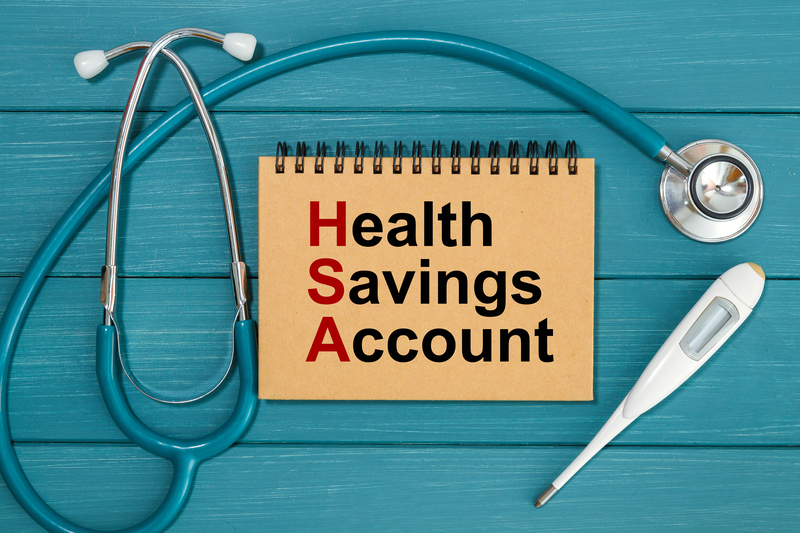Tag: taxes
How 2024 Inflation Adjustment Will Affect Your Paycheck
March 15, 2024

This year may come with slightly larger paydays for some Americans. This is because of the new changes to taxable income and deductions that the IRS has put in place in order to help taxpayers with inflation. With the cost of living increasing without wages and salaries doing the same, the new tax adjustments are meant to help consumers deal with higher prices.
As federal income tax brackets are adjusted by 5.4% this year, the change could result in a small paycheck bump, depending on what your withholding is. Since the consumer price index only declined by .1% in November 2023, many Americans are struggling financially.
Here’s everything you need to know about the 2024 tax changes that might affect your bottom line.
Decoding Tax Bracket Creep
The new IRS tax brackets and increased standard deductions have been in effect since January 1st. These adjustments will apply to your next tax return in 2025. It’s standard for the IRS to make changes every year to account for inflation. This is done to help people with the rising costs of living and prevent “bracket creep,” which happens when inflation forces people into a higher income tax bracket without their real income having increased.
So even if you make more money this year, these changes may keep you from falling into a higher tax bracket. You may even find that you have fallen into a lower tax bracket and see an increase in your take-home pay. This becomes even more likely if your pay has stayed the same as in the previous year. For example, if you made $45,000 last year, you would have been in the 22% tax bracket. In 2024, the same $45,000 income places you in the 12% bracket, which means you’ll owe less federal taxes and have less money withdrawn from your checks.
Choose Your Deduction and Know Your Taxable Income
The federal income tax bracket that you fall into determines how much you’ll pay in taxes for the year. Your tax bracket excludes the standard deductions or any itemized tax deductions. Most people with simple taxes claim the standard deduction, which reduces their taxable income. If you receive wages from only one job and receive a W-2, then the standard deduction is usually the best way to maximize your tax refund. But if you are self-employed or have specific deductions you want to claim, then you may elect to itemize your deductions instead.
Once you calculate your taxable income by subtracting either the standard or itemized deductions from your adjusted gross income, then you’ll know which bracket you fall into and how much income tax you should owe. “You always want to keep a running total in your mind of how your income is changing,” says certified financial planner Roger Stinnett. “Because it’s complex.”
2024 Tax Brackets and Standard Deductions
For the 2024 tax year, both the federal income tax brackets and the standard deduction were raised. These amounts will apply to your 2024 taxes, which you won’t file until 2025.
For those married filing jointly with a combined income between $23, 201 and $94,300, the estimated taxes owed would be $2,320. For a single taxpayer with an income between $11,601 and $47,150, they would owe $1,160, plus ten percent of any amount over $11,600.
The standard tax deduction for 2024 for those who file single will be $14,600, which is a $750 increase from 2023. For those married and filing together, the standard deduction will be $29,200, which is a $1,500 increase from last year.
Watch Your Withholdings
The federal and state withholdings on your paycheck will determine whether or not you’ll owe taxes at the end of the year or receive a refund from overpaying throughout the year. Regardless of your changes to your income, you may be placed in a lower or higher tax bracket because of the new adjustments.
It will be important to keep track of any life changes that may affect your filing situation, such as marriage, divorce, the birth or adoption of a child, retirement, buying a home, having to file for bankruptcy, and more. If you know your situation has changed since the previous year, it will be important to adjust your withholding by filing a new W-4 with your employer. If you had a large refund or owed a large amount last year, then this is a sign to check your withholding.
Other 2024 Tax Changes to Know
The IRS also announced higher contribution limits for tax-deferred retirement plans for the 2024 tax year. Americans may now contribute up to $23,000 into their 401(k), 403(b) and most 457 plans, which is $500 more than in 2023. The limit on annual IRA contributions also increases to $7,000, up from $6,500 the previous year. For those that save for added healthcare costs, the FSA contribution limit has also increased to $3,200, which is up from $3,050 for 2023. And if you collect Social Security, then you’ll receive a 3.2% cost-of-living adjustment in 2024.
The purpose of these tax changes is to help taxpayers feel the pain of inflation less. If you’ve noticed a higher paycheck, then different withholdings may be why. Figuring out whether or not you’ll be falling into a different tax bracket this year will help you determine if you’ll be benefiting from the new changes. Insureyouknow.org can help you store all of your financial information and tax preparation documents so that when it comes time to file, the process will be as painless as paying less taxes in 2025.
Save with a Health Savings Account
April 27, 2021

A Health Savings Account (HSA) is a type of savings account that lets you set aside money on a pre-tax basis to pay for qualified medical expenses. By using untaxed dollars in an HSA to pay for deductibles, copayments, coinsurance, and some other expenses, you may be able to lower your overall health care costs.
An HSA may receive contributions from an eligible individual or any other person, including an employer or a family member, on behalf of an eligible individual. Contributions, other than employer contributions, are deductible on the eligible individual’s tax return whether or not the individual itemizes deductions. Employer contributions aren’t included in taxable income and distributions from an HSA that are used to pay qualified medical expenses aren’t taxed.
High Deductible Health Plan
One way to manage your health care expenses is by enrolling in a High Deductible Health Plan (HDHP) in combination with opening an HSA. While you can use the funds in an HSA at any time to pay for qualified medical expenses, you may contribute to an HSA only if you have an HDHP—generally a health plan that only covers preventive services before the deductible. For plan year 2021, the minimum deductible is $1,400 for an individual and $2,800 for a family. (The term “minimum deductible” refers to the amount you pay for health care items and services before your plan starts to pay.) Maximum out-of-pocket costs (the most you’d have to pay if you need more health care items and services) are $7,000 for an individual and $14,000 for a family.
Contribution Limits in 2021
For calendar year 2021, the annual limitation on deductions for an individual with self-only coverage under an HDHP is $3,600. The annual limitation on deductions for an individual with family coverage under an HDHP is $7,200. The IRS announces annually the HSA contribution limit that applies each calendar year. You can review IRS Publication 969 each year to determine the current limit.
HSA funds roll over year to year if you don’t spend them. An HSA may earn interest or other earnings, which are not taxable.
Some health insurance companies offer HSAs for their HDHPs. Check with your company to see if you are eligible. You also can open an HSA through some banks and other financial institutions. If you are interested in enrolling for healthcare coverage through the U.S. Department of Health and Human Services’ Health Insurance Marketplace®, you can check to see if specific plans are “HSA-eligible.”
It’s also important to note that there is an aggregate limit that applies to both your own contributions as well as any money your employer puts into your account. This is different from 401(k) rules, where an employer’s matching funds do not affect your ability to contribute to your account. If your employer puts $2,000 into your HSA and you have self-only coverage, you would be allowed to contribute only $1,600 before reaching the 2021 contribution limit.
Catch-up Contributions
HSA account holders who are 55 and older are entitled to make an additional catch-up contribution valued at $1,000 on top of contribution caps. Because of the HSA catch-up contribution rules, in 2021 the self-only coverage limit is $4,600 and the family coverage limit is $8,200
Catch-up contributions are intended to help older Americans who may incur outsized medical expenses, or who may not have saved enough for a secure retirement and want to boost their contributions to tax-advantaged accounts as they near the end of their careers.
Older Americans may want to make catch-up contributions because healthcare costs tend to rise with age and because an HSA can be a valuable type of retirement savings account. HSAs work as a retirement savings plan because money can be withdrawn penalty-free for any purpose, not just medical expenses, after age 65. Once an HSA account holder turns 65, distributions not used for medical costs are taxed at their ordinary income tax rate, the same as distributions from a 401(k) or traditional IRA.
HSA Funds and Taxes
Because HSA contributions can be made with pre-tax funds, you can deduct the amount you’ve contributed from your taxable income in the year you make the contribution.
The fact that HSA contributions are tax deductible means any money you contribute reduces the income you’re taxed on, which saves you money on the taxes you pay to the IRS. It also means your take-home pay declines by a smaller amount than what you actually contributed.
For example, if you have $50,000 in taxable income and make a $3,600 deductible contribution to an HSA, you will be taxed on only $46,400 in income due to your contribution.
The specific amount you save due to your HSA contribution will depend both on how large your contribution is and on your tax rate. Those who are taxed at a higher rate and those who make larger contributions will realize more savings.
Contributions are tax-deductible up to HSA annual limits, and money can be withdrawn tax-free to cover qualifying medical expenses.
Money in an HSA can be invested and can be withdrawn for any purpose after age 65 without penalty, although you’ll be taxed at your ordinary income tax rate for distributions not used for covered medical costs.
HSA Distributions
The IRS provides a comprehensive list of medical and dental expenses that qualify in Publication 502 and include the following categories:
- Prescription medications
- Nursing services
- Long-term care services
- Dental care
- Eye care, including eye exams, glasses, and contact lenses
- Psychiatric care
- Surgical expenses
- Fertility treatments
- Chiropractic care
- Medical equipment
- Hearing aids
Under the CARES Act, which passed in March 2020, you can now use your HSA funds to pay for a variety of over-the-counter (OTC) items without a prescription. The rules are retroactive to Jan. 1, 2020, so if you purchased these items with non-HSA funds, you can still submit your receipts for reimbursement.
Telemedicine or remote healthcare can be covered by HSA plans at no charge, even if you haven’t met your deductible, through the end of 2021.
The following items also have been made HSA-eligible by the 2020 CARES Act:
- Acid reducers
- Acne treatment
- Allergy and sinus medications
- Anti-allergy medications
- Breathing strips
- Cough, cold, and flu medications
- Eye drops
- Feminine hygiene products
- Heartburn medications
- Insect repellant and anti-itch creams
- Laxatives
- Lip treatments for cold and canker sores
- Medicated shampoos and soaps
- Nasal sprays
- Pain relievers
- Skin creams and ointments
- Sleep aids
- Sunscreen and OTC remedies to treat the effects of sun exposure
The Bottom Line on HSAs
HSAs give you the opportunity to set aside money so you can pay for medical care with pre-tax dollars. But because you can invest and grow these funds as well as hold them in cash, HSAs offer much more than just a way to save on medical care. If used as a long-term investment vehicle, your HSA account could help you save on healthcare costs in retirement while reducing your tax bill in the meantime.
InsureYouKnow.org
During each calendar year, you can keep track of all your HSA contributions, expenses, and tax-accounting details at insureyouknow.org.
What to Do With Your Tax Refund
March 8, 2019
 It’s that time of year again! While experts agree you should avoid getting a large tax refund (which is essentially an interest-free loan to Uncle Sam), it’s hard not to feel giddy when you know extra money is coming your way. Many people look forward to getting a refund each year and use it as an excuse to splurge on themselves.
It’s that time of year again! While experts agree you should avoid getting a large tax refund (which is essentially an interest-free loan to Uncle Sam), it’s hard not to feel giddy when you know extra money is coming your way. Many people look forward to getting a refund each year and use it as an excuse to splurge on themselves.
Before you buy that new TV, however, it’s important to take a close look at your finances and determine if that’s really the best idea. While putting that money toward a more practical purpose may not be as much fun, it can pay off in the long run.
Here are a few smart ways you can use your tax refund:
- Pay off debt. This is a no-brainer. If you’re carrying around credit card or other high-interest debt, you want to get rid of it as quickly as possible. Before that cash has a chance to get comfortable in your bank account, use it to pay down your debt and lessen some of the anxiety hanging over your head.
- Put it in savings. It never hurts to pad your savings. This could be the year that your hot water heater breaks down or your car decides to bite the dust. Set that money aside in a high-yield savings account so it’s there when you need it.
- Prepay your mortgage. Your home is probably your biggest investment—and your mortgage payment is probably your biggest debt. Putting a little extra toward your mortgage regularly can save you thousands of dollars and shave years off your loan.
- Fund your retirement. You don’t have any debt. You have a fully funded emergency fund. Does that mean you’re free to book that plane ticket to Cancun? Not necessarily. How are your retirement accounts doing? If you’re behind on your retirement savings, it’s not too late to catch up.
- Invest in yourself. It’s easy to let your career get stuck in a rut. Your tax refund can help you make a career change or take your skills to the next level. Use it to enroll in continuing education courses or certification programs and earn that promotion you’ve been waiting for.
- Upgrade your life. Sometimes you simply need to make a major purchase. If you’re a freelance writer and your computer is slow as molasses, you probably need a new one so your business doesn’t suffer. If your energy bill is sky-high and you live in an older house, it might be a good idea to replace your windows. Making smart purchases now can save you a lot of money down the road.
Whatever you do with your extra cash, make sure you keep track of it. The last thing you want to do is slowly spend it on a frozen treat here or a pack of gum there, only to discover it’s gone before you know it. You should regularly monitor your banking statements and other financial documents to ensure you know where your money is going. Don’t forget to store these and all your other important documents on InsureYouKnow.org. It’s part of being a knowledgeable, financially responsible consumer.
